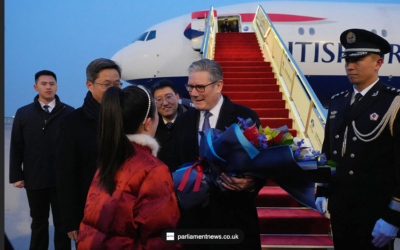Donald Trump’s 2024 election win has stirred discussions across global markets, trade partnerships, and geopolitical relations. As his administration starts to roll out policies, significant economic impacts are expected across the world. This new direction could mean both challenges and opportunities for international markets and economies as they respond to changes in trade policy, fiscal dynamics, and environmental strategies. Here’s a look at what Trump’s presidency might mean for the global economy.
A Shift Towards Protectionism
Trump’s “America First” stance signals a move towards more protectionist trade policies, impacting global supply chains and trade relationships. His administration has already floated a 10% baseline tariff on imports, especially targeting countries like China. This approach may protect certain U.S. industries but could also introduce significant changes to global manufacturing and trade routes as companies try to sidestep these tariffs.
For countries heavily dependent on exports to the U.S., the impact could be immediate, potentially leading them to shift partnerships and strengthen regional trade agreements. In response to a more protectionist U.S., the European Union, Asia, and other regions may boost intra-regional trade to insulate themselves from American tariffs. This shift could fragment the global economy, forming trade blocs that bypass traditional U.S. partnerships.
Fiscal Policies Favoring Deregulation and Growth—At a Potential Cost
Trump’s fiscal strategy includes cutting taxes for corporations and high-income individuals, paired with sweeping deregulation across various industries. This approach is designed to spur immediate growth and make the U.S. a more attractive environment for business investment, especially in sectors like finance and technology. By removing regulatory restrictions, Trump’s administration hopes to create an environment where industries can expand rapidly.
However, the risks associated with this strategy could affect both the U.S. and international markets. The potential for rising inflation, coupled with an increasing national debt, could lead to financial instability. Countries with economies tied closely to the U.S. dollar or with significant investments in American markets might feel these effects ripple through their own markets, impacting currency stability, interest rates, and investment flows. The short-term growth surge in the U.S. could come at the expense of longer-term financial stability, with potential effects on global borrowing costs and economic resilience.
Federal Reserve Independence and Global Financial Stability
One of the most closely watched aspects of Trump’s presidency will be his stance on the Federal Reserve. There are concerns that his administration might seek to influence the Fed’s traditionally independent monetary policies, which could have significant implications. The Federal Reserve’s independence is a cornerstone of stable U.S. monetary policy, providing a buffer against political influence and helping to control inflation and employment levels.

If political influence begins to affect Fed decisions, it could lead to unpredictable rate adjustments, unsettling global markets. International investors, particularly those in emerging markets or economies heavily reliant on dollar-denominated trade, would likely feel the consequences. A potentially destabilized U.S. dollar could introduce volatility in global currency markets and impact economies that depend on dollar stability for their trade and investment strategies.
An “America First” Foreign Policy and Evolving Global Alliances
Trump’s foreign policy approach is expected to prioritize U.S. interests over multilateral alliances, which could lead to strained relationships with traditional allies and shift global power dynamics. Trade tensions, especially with China, are likely to heighten, as Trump’s policies favor bilateral agreements over broad-based international cooperation.
This approach could push other nations to form new alliances that reduce dependency on the U.S. The European Union, for example, may deepen trade ties with Asian and African markets, while emerging economies could strengthen regional agreements, shifting away from U.S.-centered trade. This fragmentation of economic alliances could redefine the global landscape, creating new economic hubs and trade relationships independent of traditional American influence.
Environmental Policy Divergence and Global Climate Goals
On environmental issues, Trump’s administration is likely to move toward deregulation in the fossil fuel sector, rolling back climate policies and favoring traditional energy industries. While this policy might support certain U.S. sectors in the short term, it risks isolating the U.S. from international climate initiatives. Many nations are pressing forward with green energy policies and sustainable development goals, and Trump’s stance may drive a wedge between the U.S. and other economies committed to combating climate change.

The global shift towards sustainable practices is likely to continue without U.S. involvement, as Europe, Asia, and other regions expand investments in green energy and carbon reduction. As countries look to reduce carbon footprints, the U.S. may find itself excluded from partnerships and initiatives in renewable energy and green technology, impacting U.S. companies that wish to compete in these fast-growing sectors.
Navigating a Fragmented Global Economy
With Trump’s administration focusing on protectionism, deregulation, and national priorities, the global economy may be entering an era of fragmentation and adaptation. International businesses, governments, and investors will likely face a more polarized economic landscape, one where trade alliances shift, tariffs rise, and traditional partnerships evolve.
For global markets, Trump’s presidency introduces both opportunity and risk. Businesses may benefit from a more relaxed regulatory environment in the U.S. but will also need to adapt to the challenges of a more protectionist and potentially fragmented world economy. As trade partnerships realign and new alliances form, international companies and economies will need to be nimble, navigating a future shaped by shifting power dynamics and economic uncertainty.
In this evolving global landscape, the effects of Trump’s policies will not only shape America’s economic trajectory but could fundamentally alter the way economies interact worldwide. The stakes are high, and as countries and businesses adjust to these changes, the coming years promise a complex blend of adaptation, innovation, and resilience in response to a new era of economic relations.


